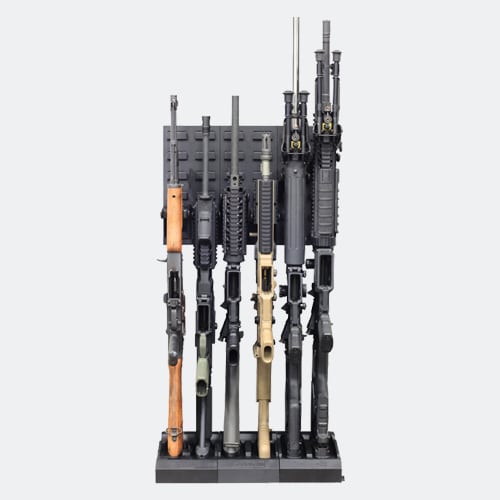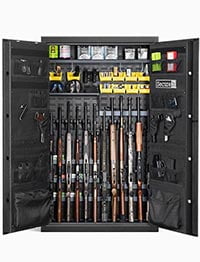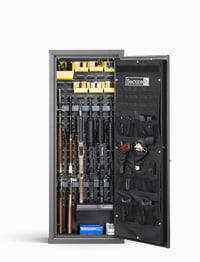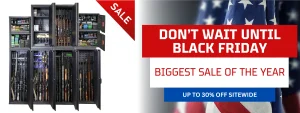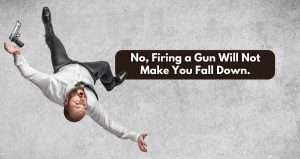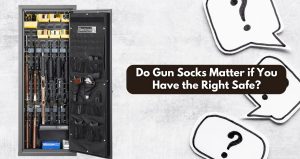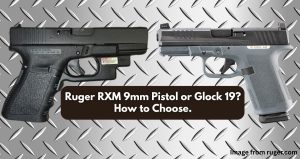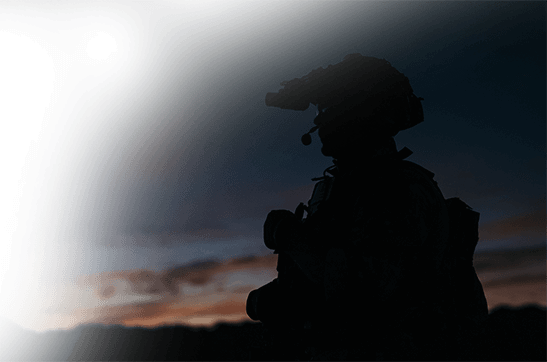Gun Storage for Personal Defense and to Foil Thieves
Single-location gun storage no longer makes sense. Decentralized gun storage makes it tactically more effective to protect your family and much more difficult for gun thieves.
The two basic security concerns when it comes to guns in the home are opposing forces.

Secure your guns so others cannot get them and have them available quickly in the event of a crisis.
You can easily achieve both goals. In fact, some of the most secure locations in your home are also the best places to store guns, as it applies to self-defense and achieving a tactical advantage. We say “secure locations”, because hiding is better than securing. The truth is, the only type of safe that cannot be broken into is one that cannot be found.
A big, obvious gun safe is the last place I would keep valuables or any firearms I may want available for personal defense. Modern gun safes offer little in the way of security, take too long to open, are too big to hide, and are usually the first place a thief goes to look for valuables.
Decentralizing your gun storage makes it tactically more effective to protect your family and more difficult for gun thieves to gain access to your firearm collection.
https://youtu.be/VpBPxOfRsQU?si=slrmEqw_awfmWwUn
The Statistics: United States Department of Justice Report
Consider the numbers surrounding home invasion and burglary:
– 65% of all home break-ins occur during the day. Most occur between 10am and 3pm.
– Most criminals are in and out of a home in under 10 minutes.
– 30% of burglaries occur when someone is home.
– 38% of assaults and 60% of rapes occur during home invasions.
– It is possible to buy a set of bump keys for less than $20 online and these will unlock nine out of ten doors in the United States with little difficulty.
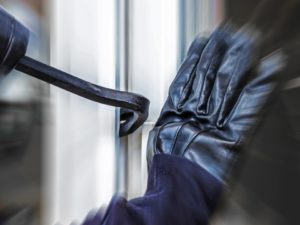
The actual risk of a violent home invasion in America is low, but we still take steps to ensure the safety of our families. When people tell me “My neighborhood is safe” or “the odds of a break-in are so low”, I respond “Do you ever buy lottery tickets? The odds of winning the lottery are much lower, but you still buy a ticket.”
Personal defense and security is a choice you make. The odds are, you will never have to deploy self-defense measures but it is important to have them available in case you need them. How and where you secure guns in your home can be critical to your safety and defensive capabilities. If you have firearms locked in your home, store them in a manner that gives you an advantage in the event of a crisis. What good is a gun in a crisis, if you cannot get to it?
Where do thieves go when they break into a home?
Real-world crime data shows that when a thief breaks into your home they are going to the master bedroom, home office, living room, and the dining room, most likely, in that order. If they think there is a safe in the house, they will likely go to the basement after going to the living room. A big, heavy gun safe is not a deterrent, but an invitation to a thief as they know something valuable is inside. Once found, if a thief came prepared, they will have a safe opened in mere minutes.
So where do you store firearms for the best tactical advantage in the event of a crisis?
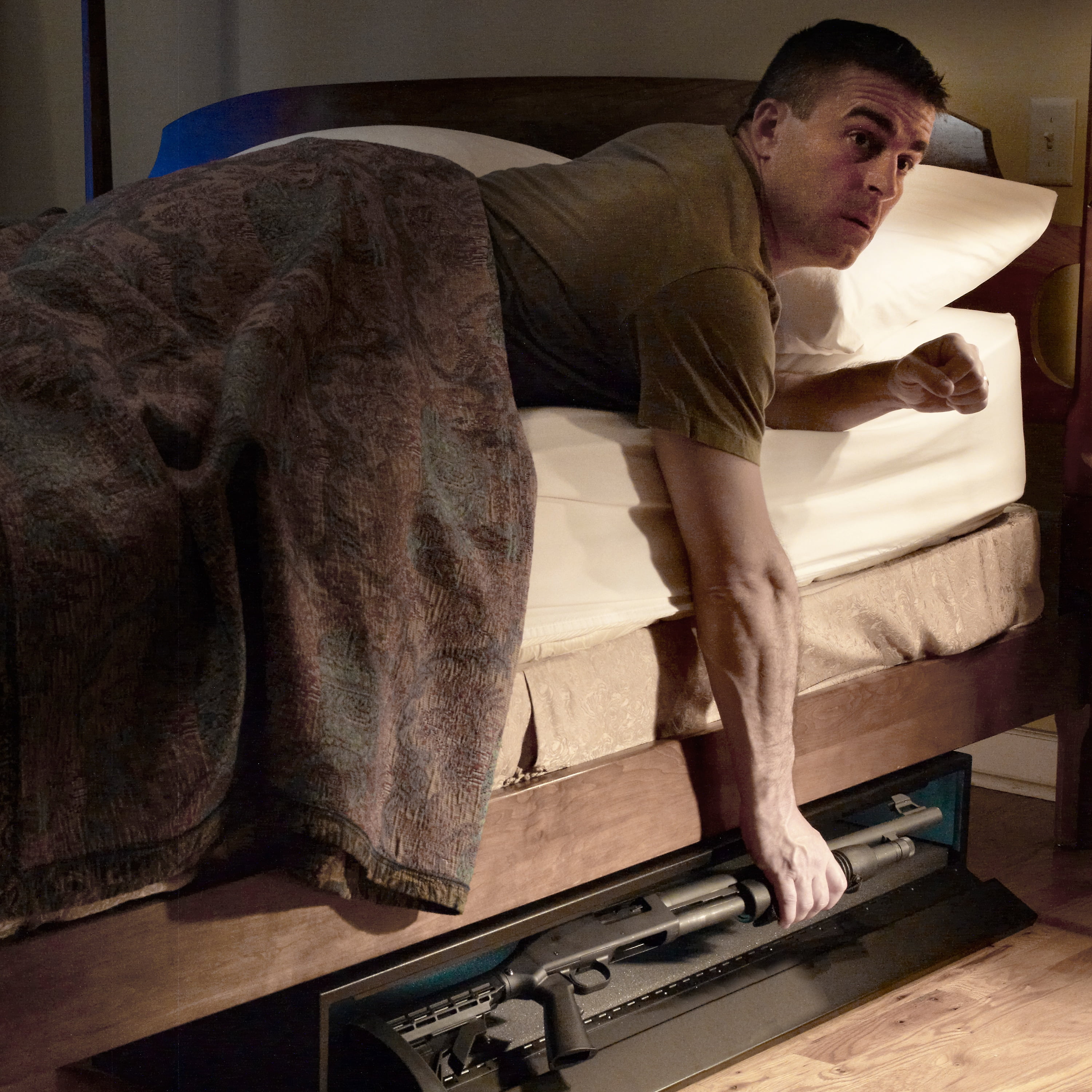
– The Master Bedroom – While the data suggests this is the worst room to store valuables, it is also a room where you spend a great deal of time sleeping. Store one to two firearms in a Fast Box under your bed. No more than that is necessary.
– The Kitchen Pantry – Great location for a small gun cabinet as thieves are not typically interested in the kitchen. This is also a room where people spend a lot of time during the day. In the event of a home invasion, if you are in the kitchen, you will have quick access to a firearm. Also, most homes have an exit near, or from, the kitchen. This allows you to arm yourself and then evacuate the home. Your goal always should be to avoid confrontation.
– A Closet Near the Front Door – This is a great location for securing firearms. Thieves ignore these closets. If someone you do not recognize knocks on the door, you refuse to open and they start trying to kick it in, you’ll have very fast access to a gun in that closet.
– Guest Bedroom – If your home has a guest room with a closet, this is a good location for additional gun storage. Thieves will typically ignore guest rooms.
Bottom line: Have a plan
We are taught that in case of a fire you should have a place outside the home for everyone to meet. This way you know everyone is accounted for.
In a robbery or home invasion where you cannot exit the home, you should designate a room where family members go in the event of an emergency. A guest room or secondary bedroom with a locking door is a great choice. You should have a Fast Box or Agile cabinet secured in this room.
However, in the case of home invasion, no matter where you are in the house you should always be within a few seconds of accessing your firearms. They should not be out in the open and they should be secured and hidden from small children and from being used against you.
